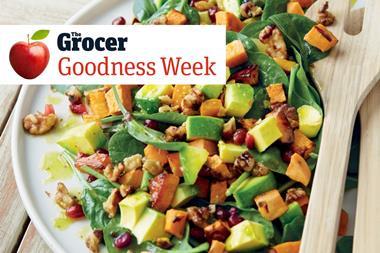As the animal by-products industry continues to be under an unwelcome spotlight over the horse DNA contamination scandal in the UK and Ireland - believed to be linked to meat ingredients imported from the Continent - the sector’s global prospects are looking up, according to a new report by Rabobank.
Historically, animal carcase valuations used to be driven by prime cuts - the cuts with the highest market value - but the focus has recently shifted to processing cuts, such as chuck and plate, and so-called fifth-quarter cuts, such as offal, and is likely to stay there in the long term, the bank said.
Rabobank cited five key reasons for this: as more women entered the workforce in emerging markets and consumers had less time to cook, there was a growing demand for convenience meats, while consumers in other markets were increasingly trading down to cheaper meat products as a result of the economic downturn. In addition, demand for by-products was set to be fuelled by the decline in sow herds in the EU and the US the opening up of China and other emerging markets to global meat imports as well as increasing use of by-products in pharmaceuticals and cosmetics.
Commodity Winners & Losers: Palm oil prices start to edge up
Most of the commodities in our tracker remain cheaper than a year ago, although prices have started to edge up again of late.
After hitting a two-year low in December - which coincided with a seasonal decline in production - palm oil prices in the EU have recovered over the past month to reach £547/tonne, up 5.7% month-on-month. However, they remain more than 20% cheaper than this time last year, as good global supplies and reduced demand continue to depress prices.
Coconut oil is also significantly below last year’s prices, as a result of global production increasing by 8% year-on-year in 2012. In 2013, production is set to increase by a more modest 1%, contributing to a recent uptick in prices by 4.9% month-on-month, to £524.4/tonne.
Meanwhile, durum wheat prices in the EU remain on a downward trajectory both on a month-on-month and year-on-year basis, falling by 7.3% and 34.4% respectively, as the market continues to recover from the high prices seen during 2011/12 season. It’s a similar story for cocoa powder prices in the UK, which continue to fall from the peaks seen in mid-2011.
It also pointed out many Asian markets had a cultural preference for fifth-quarter products over prime cuts, which meant demand for non-prime cuts was likely to stay high in these markets regardless of their growing wealth.
The shift in demand for different parts of the animal carcase would “impact the business models of almost all players in global meat,” Rabobank warned, with different impacts to be felt by slaughterhouses, the processing industry and animal by-products companies. “For slaughterhouses, the focus will increasingly move towards capturing the value of fifth-quarter products, which might lead to forward integration in these activities,” said analyst Albert Vernooij.
The processing sector may also be forced into changing its sourcing strategy on raw materials or “enter into long-term supplier contracts to safeguard supply”, while by-products specialists were likely to face increasing competition. “which might urge these players to strengthen their position in the value chain,” Rabobank added.



















No comments yet